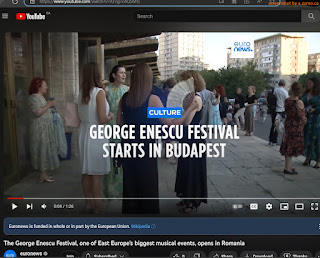10 History Lessons on the Russo-Ukranian Crisis
Varianta în limba română pe FaṭăCarte Meta.
- Kasparov’s tweet suggests that he too (presidential candidate) sees the Munich-Ukraine connection.
- history.. so I list a number of seemingly disparate, mostly overlooked historical facts or theories.
- Putin is more likely to invade than the Ukraine side is willing to admit, but each party to this charade has its [historically motivated] reasons to play their role.
It seems that the odds of a Russian invasion are increasing even though Ukraine tries to play it down (though if it doesn’t happen by March it’s unlikely it will ever happen). Ukrainian mothers are buying rifles and Lukashenko is as dumb as usual (see also ABC, GN). I don’t think pax americana is a guarantee or obstacle for Putler but rather a thorn in his foot, a thorn he’s already removed.
Gary Kasparov had tweeted (gktwt) a comparison to the Sudetenland undeclared war of 1938, suggesting that he too sees parallels between Munich and Ukraine. I actually had difficulties finding this last topic discussed in an article (and others) in Wikipedia. So here’s a few other historical facts that may be less known.
- Much has been said about Hitler’s religious views. It seems to me that Adolf was either agnostic or deist but professed Christianity/Catholicism while he needed to be elected – see also Reichskonkordat. Putler uses the church similarly.
- Reichswehr (i.e., the German army) circumvented the Treaty of Versailles (they called it Diktat) through cooperation with Soviet Union, starting in 1920s and all the way to Hitler’s ascent, who stopped this collaboration and brought it all out in the open (gradually). Soviet Russia trained German (future Nazi) troops on its territory, allowing even chemical weapons testing, and also learned/trained military personnel using the superior German techniques and knowledge. Russian military deception developed as a doctrine in the 1920s as well.
- When Germany invaded Russia in Operation Barbarossa, Stalin was taken by surprise despite repeated warnings from his intelligence services as well as the Brits, had a nervous breakdown and went to his dacha, staying there several (seven?) days undisturbed and incommunicado, until his lackeys came to get him, much like Ivan the Terrible, who abdicated twice and was begged to re-take the throne by the boyars. Was it a test of his subordinates?
- Czars were well-built: ItT was “tall and athletically built, with broad shoulders and a narrow waist” and so was the last czar, who was a swimmer and had a pull-up bar in his office (np-czar)
- I’ve mentioned RA2 in the previous article. It’s an old (early 2000s) game, still fun to play and still relevant as long as Putin plays his game of poker. Turns out I’m not the only one who sees it that way – here’s AlternateHistoryHub summarizing the storyline. LE: Forgot to mention the weaponized dolphins from RA2 making appearances around the world (Hvladimir, forbes, ni).
- The assassination of G-ral Avramescu by Beria’s NKVD is almost as pointless and unnecessary as any other crime in the Great Purge.
- I see parallels between Putin and Yezhov, including a quieter version of the Napoleon complex. Putin was accused of plagiarism.
- During the Great Purge, many old guard officers had been dismissed or demoted, but following the underperformance in Poland and elsewhere, 80% had been reinstated by the time Hitler invaded.
- Both ItT & Stalin were seriously affected by the death of one of their wives.
- Immediately after WWII, over 50% of Europeans knew that Soviets lost the most people and resources; today it’s 10-15%.
The sad reality is that both Ivan the Terrible, the first tsar of the Russian Empire and Stalin, who brought the Soviet Empire to modernity under the banner of a hypnotic ideology (which, paradoxically, professed to fight the imperialism that was a core tenet of the state), have strengthened state power through autocratic rule. It should be quite obvious that without terror and territorial expansion, their empire would have disintegrated faster.
Putin carries not only the weight of these predecessors, but he is also acting under the perceived urgency of a way/wave of life that’s incompatible with the tradition of Russian autocracy, a somewhat freer system that is slowly eroding and chipping away at his former subjects. LE: And by the way, it's not only the Soviet empire shrinking, it's also the British one, or what's left of it..
None of the above bodes well for Ukraine and freedom in CIS. I doubt that Romania will be invaded, but it would certainly [continue to] suffer blowback from all of Putin’s destabilizing actions, just like all the other countries in the region. I certainly hope, much like Taibbi (tbb-ntwr) and every thinking person, that war can be avoided.
What bugs me right now is why is it so difficult to find info on Stalin’s breakdown in Wikipedia (is it a disputed fact)?
Sources / More info: gktwt, np-czar, who-ssnb, ddp-sb, quo-7d, tbb-ntwr




Comments
Post a Comment
Thank you for commenting. Please keep it sweet and civil. Puteti comenta in romana si pe Meta la fb.me/zamolxis or Twitter @zamoca